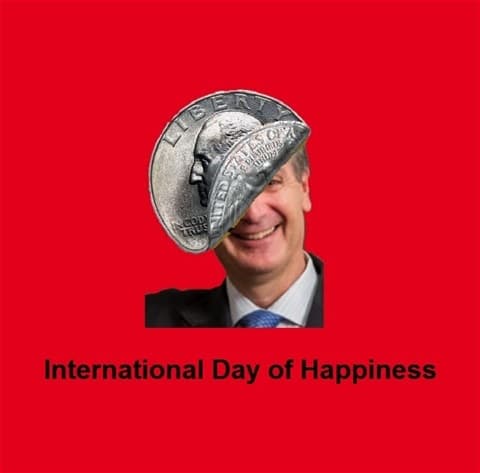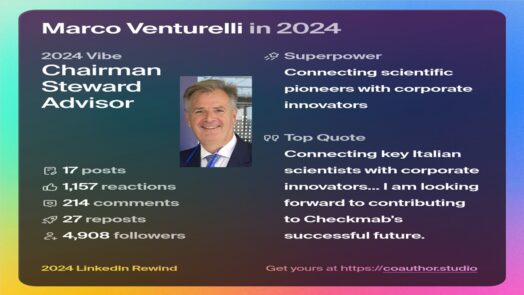Measuring Happiness – The World Happiness Report

Measuring Happiness – The World Happiness Report –
Happiness – as defined by Wikipedia – is a mental or emotional state of well-being defined by positive or pleasant emotions ranging from contentment to intense joy. Happy mental states may also reflect judgements by a person about their overall well-being. A variety of biological, psychological, economic, religious and philosophical approaches have striven to define happiness and identify its sources. Various research groups, including positive psychology and happiness economics are employing the scientific method to research questions about what “happiness” is, and how it might be attained.
The United Nations declared 20 March the International Day of Happiness to recognise the relevance of happiness and well-being as universal goals. In the fifth World Report expected to be published on March 20 2017, Happiness will be measured in the Report along 8 parameters (detail at the end of the article) and countries are ranked accordingly.
More and more Happiness is a reference for policy makers: The British prime minister, David Cameron, started in 2010 to measure his nation’s happiness: “It’s time we admitted that there’s more to life than money, and it’s time we focused not just on GDP, but on GWB – general well-being. Well-being can’t be measured by money or traded in markets. It’s about the beauty of our surroundings, the quality of our culture and, above all, the strength of our relationships. Improving our society’s sense of well-being is, I believe, the central political challenge of our times.”
Higher GDP per Capita Higher Happiness – Money increases Happiness?
Annual income twenty pounds, annual expenditure nineteen, nineteen and six, result happiness.
Annual income twenty pounds, annual expenditure twenty pounds ought and six, result misery.
Wilkins Micawber in the Book “David Copperfield” by Charles Dickens
The first measure included in the Report is GDP per capita in terms of Purchasing Power Parity (PPP). It measures the impact that income has on Happiness. According to previous reports, people in countries with a GDP per capita of below $6,700 were 12% less likely to report the highest level of life satisfaction than those in countries with a GDP per capita of around $20,000. Countries with GDP per capita over $20,000 see a much less obvious link between GDP and happiness. Between this level and the very highest GDP per capita level ($54,000), the probability of reporting the highest level of life satisfaction changes by no more than 2%, and seems to be hump-shaped, with a bliss point at around $33,000. This corresponds broadly to the well-known Easterlin Paradox – that the link between life satisfaction and GDP is more or less flat in richer countries. (See notes on source of analysis)
Money increase Happiness, if you use it wisely – 5 rules
Buy moments, not stuff. According to Dan Gilbert, Harvard University psychology professor and author of Stumbling on Happiness, the key is to spend your money on experiences rather than material things. Material things, even if they’re expensive or you wanted them badly, tend to lose their luster after a while, literally and figuratively. Memories of people, places and activities, however, never get old. In a survey, Gilbert found that 57% of respondents reported greater happiness from an experiential purchase. Only 34% said the same about a material purchase.
Spend on others. In a study published this year, Harvard University researchers conducted experiments and found out that spending money on others (called “prosocial” spending in academic jargon) boosts people’s emotional and physical well-being.“The benefits of prosocial spending… extend not only to subjective well-being but objective health,” they write. Despite people’s intuitions and inclinations to the contrary, one of the best ways to get the biggest payoff personally from a windfall of $20 is to spend it prosocially.”
Buy small splurges. Dropping a ton of cash on something extravagant doesn’t give you the same bang for your buck because, no matter how special it is at first, you get used to having it over time and it becomes just another object. “Giving yourself inexpensive indulgences is a clever way to gather up lots of bursts of happiness,” a recent Business Insider article suggests, citing Gilbert’s research.
Buy what you like. No keeping up with the Joneses — that’s not going to make you happy. “There are a lot of reasons someone might buy something… but if the reason is to maximize happiness, the best thing for that person to do is purchase a life experience that is in line with their personality,” Ryan Howell, an associate psychology professor San Francisco State University, tells Forbes. Howell recently co-authored a study finding that when people spend money just to project or uphold a certain image, it doesn’t bring happiness.
Spend with others. You might think spending money on things or activities you do by yourself will make you happy, but a recent study in Psychological Science says that tactic can backfire. “To be extraordinary is to be different than other people, and social interaction is grounded in similarities,” says Gus Cooney , Harvard University research assistant and lead author of the study. Doing things with friends or family, even if it’s not as exciting, makes you happy because it fosters a sense of togetherness and connection between you and other people. “The guy who had the extraordinary experience had a harder time fitting in,” Cooney tells The Atlantic.
Companies contribute to increase GDP – Generate wealth and Money – Are they producing Happiness?
In simple terms, GDP per Capita – Gross domestic product (GDP) used in the measure of Happiness, is the monetary value of all the finished goods and services produced within a country’s borders in a specific time period it is then divided by the inhabitants and adjusted by PPP.
In other words, it is the sum of the Revenues of all companies and individuals working in a certain country. So the more the company sell the higher should be Happiness.
I ran a small test asking to 4 managers belonging to different departments and industries, if the fact that their company was contributing to generate GDP was enough to state that their company was generating Happiness for its employees:
“No, Marco, there is no happiness at work, – Richard, a young production manager says – “I take care about my personal happiness following the advices of Action For Happiness: I do things for others, I connect with people, I take care of my body and mind health, I keep learning new things, I am resilient and know my direction. I accept myself, feel part of something bigger and look for what is good. With my dears, my family I feel happy. But the in the company we have always to change the goalpost of what success looks like: we launch a product successfully that becomes the base for the next one to be even better; profitability is improved, then we have to apply “continuous improvement’ methodologies; you have done a good job, now you have to do a better one; you hit your sales target, we’re going to change it. And if happiness is on the opposite side of success, your brain never gets there. We’ve pushed happiness over the cognitive horizon, as a society. And that’s because we think we have to be successful, then we’ll be happier” Company puts too much pressure on success.
Laura, from Marketing, sees it differently: “A company is an ideal place where to grow and nurture happiness: when a group of people is together to pursue a common goal, if they share emotions and align their individual way of finding their personal purpose in life and how it fits to the company purpose of the company one works for. You may know that we launched a program almost 2 years ago where we helped people to find/or define clearer their personal purpose. The feedback I got about the program and how I saw the people coming out of the program was exciting. I also think it has a lot to do with how one can grow every day and how much you are supported in that. Balance is also important. The more you are balanced with a work you like and your private life, it helps to be happy. I personally think appreciation for what you do is very important. And it does not need a lot. And we should not forget…the more employees are happy…the more they are engaged….and the more we succeed with our customers!!!
“I believe that happiness is mainly depending from our personal outlook on life at work, rather than from what outside circumstances can bring us every day, add Frank of the Finance department. So for me happiness at work relies mostly on:
– Setting the right expectations (that does not prevent from being ambitious and aim for excellence and success).
– Appreciate the flow of personal relations and challenges happening every day: the 1:1 and team meetings, the several exchanges of opinions, the decision-making moments, the lunches (we should never skip lunch or have lunch alone), the coffee breaks (you know how I loved my former company’s cafeteria…): in a nutshell, appreciate the beauty of connections and always be “in the moment”.
– Stay balanced, aware of who we are and always keep our personal and professional values as a compass, particularly when the going gets tough and the pressure (for deadlines, performance, financial results, etc.) mounts high.
I also believe that being happy is the secret for being successful in the true sense, best represented by the words of poet Maya Angelou: “success is liking who you are, liking what you do and liking how you do it”.
“It would be great to apply the logic of the World Report and define a set of measures for Happiness ranking or rating within a company – Annette from HR Business partner team says – I saw in a recent article by Jacob Morgan author of “The Employee Experience Advantage” on HBR that “investing in Happiness” gives high returns: it had led not only to happier employees but also to larger talent pipelines and greater profitability and productivity. Morgan in addition found that, for instance, compared with the other companies he studied, those that invested most heavily in employee experience were included 28 times as often among Fast Company’s Most Innovative Companies, 11.5 times as often in Glassdoor’s Best Places to Work, 2.1 times as often in Forbes’s list of the World’s Most Innovative Companies, 4.4 times as often in LinkedIn’s list of North America’s Most In-Demand Employers, and twice as often in the American Customer Satisfaction Index”.
You get what you measure – Proposing Measure of Happiness in the Company
The purpose of my recent articles on LinkedIn is to increase awareness about how Finance can contribute to a better Society. I increased my interest on Happiness while I was reflecting on how Finance can help Society to be a better place to live and TheHappyCFO’s articles on LinkedIn shared my thoughts. The inspiration of my articles has been Shiller’s book “Finance and the Good Society” where he writes: “What I want most for my students – near and far, young and old – to know is that finance truly has the potential to offer hope for a more fair and just world, and that their energy and intelligence are needed to help serve this goal.”
Can Finance make it “Fair, just and happier?”
Measuring Happiness not only at Country and Society as the World report does but at a Company level could contribute to monitor more frequently this key variable for individual and companies well being.
You will find more in one of the next The Happy CFO articles.




